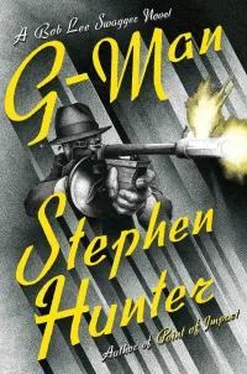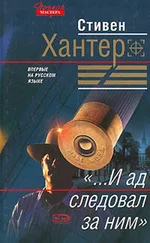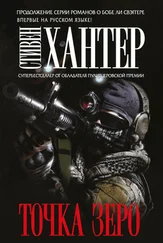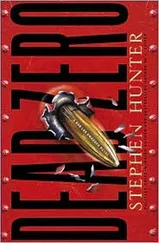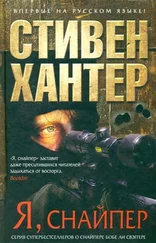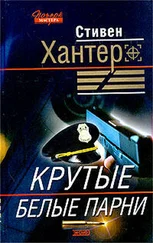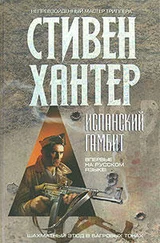Стивен Хантер - G-Man
Здесь есть возможность читать онлайн «Стивен Хантер - G-Man» весь текст электронной книги совершенно бесплатно (целиком полную версию без сокращений). В некоторых случаях можно слушать аудио, скачать через торрент в формате fb2 и присутствует краткое содержание. Жанр: Старинная литература, на английском языке. Описание произведения, (предисловие) а так же отзывы посетителей доступны на портале библиотеки ЛибКат.
- Название:G-Man
- Автор:
- Жанр:
- Год:неизвестен
- ISBN:нет данных
- Рейтинг книги:3 / 5. Голосов: 1
-
Избранное:Добавить в избранное
- Отзывы:
-
Ваша оценка:
- 60
- 1
- 2
- 3
- 4
- 5
G-Man: краткое содержание, описание и аннотация
Предлагаем к чтению аннотацию, описание, краткое содержание или предисловие (зависит от того, что написал сам автор книги «G-Man»). Если вы не нашли необходимую информацию о книге — напишите в комментариях, мы постараемся отыскать её.
G-Man — читать онлайн бесплатно полную книгу (весь текст) целиком
Ниже представлен текст книги, разбитый по страницам. Система сохранения места последней прочитанной страницы, позволяет с удобством читать онлайн бесплатно книгу «G-Man», без необходимости каждый раз заново искать на чём Вы остановились. Поставьте закладку, и сможете в любой момент перейти на страницу, на которой закончили чтение.
Интервал:
Закладка:
“This one isn’t going to be rough, is it? You said it would be easy.”
“I said it should be easy. You can’t never predict these things. Look at how poor Tommy checked out. One minute as happy as a pig in clover, the next he’s riding the handcart to hell because of a coupla Iowa hicks. I won’t lie about that, sweetie, never have, never will. It can be a dangerous game. But nobody’s been born yet can get the drop on me. I should come out of it flush, and that’ll give us a stake for the next year, we can move somewhere nice and put the kids in a good school.”
“Oh, Les, that would be so swell.”
“Quack, quack,” said Les, because he was so happy.
CHAPTER 9
BLUE EYE, ARKANSAS
The present
There wasn’t much Charles left in blue eye. There wasn’t even much Earl left. In fact, there wasn’t much Blue Eye left in Blue Eye.
Bob ordered himself not to mark the changes out loud. It could turn the afternoon into an ordeal. Remember when Nickerson’s Five-and-Dime stood here, now it’s a Mexican laundromat. Oh, and over there, that was a Winn-Dixie, at least until Mr. Sam built out by the Interstate and closed it down. And Fred’s, where all the farmers had breakfast between 4 and 6 every morning, that’s long gone. Now there’s a Sonic. What the hell is a Sonic?
No, he wouldn’t be that guy. He just reacted numbly to the undeniable reality that what had once been a little town out of which a sheriff named Andy Griffith could have operated was now mostly shuttered and bleak, and all the action seemed to be in fast-food restaurants set up on the bypass. It wasn’t all that much different, he supposed, from Cascade, Idaho, a similar spot of highway blight he called home.
It wasn’t quite dead, though. Andy Vincent, Sam’s grandson, Jake’s nephew, ran the Allstate Insurance agency, and was doing well enough to afford a tribe of kids who called Swagger Mr. Bob, and still had reputation enough to open doors in the town. That’s because he was also the mayor.
For example, when they went to the Blue Eye Star-Clarion , though it was owned by an out-of-state newspaper chain, the receptionist went and got a managing editor who was most decent, and once they’d explained why they were there, had told them that the old papers — then it was just the Clarion , “Western Arkansas’s Democratic Voice for a New South”—no longer existed anywhere except on microfiche, but they could be accessed in the library, and he’d make a call over there to ensure Bob was well taken care of, not fobbed off on some seventeen-year-old intern.
“That’s very kind of you,” said Bob. “It’s much appreciated.”
“Is there a story in your returning?” the newspaperman asked. “It seems like you haven’t been around in a long time.” And, true enough, as it had been a while.
“No sir. It’s just family business, is all. My grandfather. Realized I didn’t know a thing about him and it was time to learn a little something.”
“Got it,” said the journalist. “A trip to your own past. It should be private, then, and it will be private.”
At the library, a nice young lady set Bob up on a microfiche reader, and it took him a bit of time to get used to the mirror-backwards manipulations necessary to bring the pages under the magnifier, but he got the hang of it quick enough.
“We went to this just before the whole cyberspace thing broke,” said Ms. Daniels, as plain as a pie but small-town friendly and helpful in every way, God bless her sweet soul, “and I guess we thought it would make us so modern. And we were obsolete two weeks after we got it set up.”
“Ms. Daniels, to me indoor plumbing seems like a miracle, so this is just fine by my standards. I hate the computers anyhow. I do know left from right, so I should be all right.”
Mayor Andy went to sell a policy or run a council meeting or something, leaving Bob alone in the pages of the Clarion , January through December 1934.
It was so very long ago. Everything was different, but everything was the same. The cars were beasts, but in their humps and gropes toward smooth, you could see lines that would eventually permutate into today’s Big Mac — mobiles. All were black too, or a shade of gunmetal gray, maybe navy, maybe green. Men wore coats and ties and hats in those days, everywhere, all the time, frequently with vests, always with cigarettes, pipes, or cigars. Pipes! Hadn’t seen a pipe in years. No sunglasses. Ties never loosened except at a ball game or when going bowling. The hats were fedoras mostly, and the fashion that year demanded a circular, downward slope to the brim, no snappy little uptick to the rear like a duck’s ass. Some wore theirs atilt, rakishly, but most just pulled it down to the eyebrows, to keep the sun or the snow out, and forgot all about it. No “sport clothes”; casual clothes were merely last year’s suit pants and beat-up, worn-down work shoes. The women all wore stockings, all wore girdles (he supposed) and almost always wore hats, usually little feathery constructions that curled around and were nested in their carefully tended hair. Veils were rolled about the hats, and the dresses were big-shouldered, also flowery in both material and corsage, waists trim but not cinched in to wasp dimensions. Nobody was trying to look sexy; they left that to movie stars. And they looked like they did their vacuuming in heels and pearls. Also: no feet. The foot was taboo. Toes even more so, none glimpsed in the pages of the Clarion , January 1, 1934, through December 31, same year. Farmers wore dungarees and had open shirt collars but the same fedoras. A few straw boaters revealed themselves in the newspaper pages, standing out like bright coins in the universe of gray-black dots that was printing in those days. Lots of shots of trains, the dominant mode of transportation, and many civic ceremonies seemed to take place at the station, in front of some gigantic locomotive leaking steam and grease from a dozen portals. No airplanes, except now and then a War Department — released shot of “Our New Pursuit Ship,” a biplane with a clear plastic hood over the cockpit and a long telescopic-tube gunsight along the fuselage just fore of the windscreen, where the pilot could convert to sniper and put the crosshairs on — who? Hun? Jap? Red? They had no idea of the hurricane of violence that lurked a few years ahead and would consume so many of these happy, content, tie- and girdle-wearing citizens.
A figure known as “The Sheriff” was occasionally seen, though he faded into the background of photographs and usually looked away from the camera at the moment of the snap. Who was this man? His star, always in focus; his face, never. Was he hiding something? There was something about him that seemed not to want to be pinned down, held to account.
SHERIFF ARRESTS TWO WITH ILLEGAL STILL
SHERIFF TO CLOSE DOWN ON SPEEDERS
SHERIFF SAYS NO THREAT FROM MIGRANT WORKERS
VIOLENT CRIME DROPS, SAYS SHERIFF
SHERIFF, DEPUTIES WIN STATE SHOOTING TOURNEY
SHERIFF NABS GAS STATION ROBBER
He was everywhere, even as he was nowhere, a blur, a phantom, an image of rectitude on the move. Bob tried to get a fix on him, bringing the magnification of the machine up as high as it would go, but at a certain point the image separated into dots and only the dots were visible.
Who are you, Charles Swagger? What’s your action, your ken, your mission, your passion? For a hero, you’re quite vague, scattered, separated. You never sit still long enough for anyone to pin you down. What are you hiding?
Читать дальшеИнтервал:
Закладка:
Похожие книги на «G-Man»
Представляем Вашему вниманию похожие книги на «G-Man» списком для выбора. Мы отобрали схожую по названию и смыслу литературу в надежде предоставить читателям больше вариантов отыскать новые, интересные, ещё непрочитанные произведения.
Обсуждение, отзывы о книге «G-Man» и просто собственные мнения читателей. Оставьте ваши комментарии, напишите, что Вы думаете о произведении, его смысле или главных героях. Укажите что конкретно понравилось, а что нет, и почему Вы так считаете.
